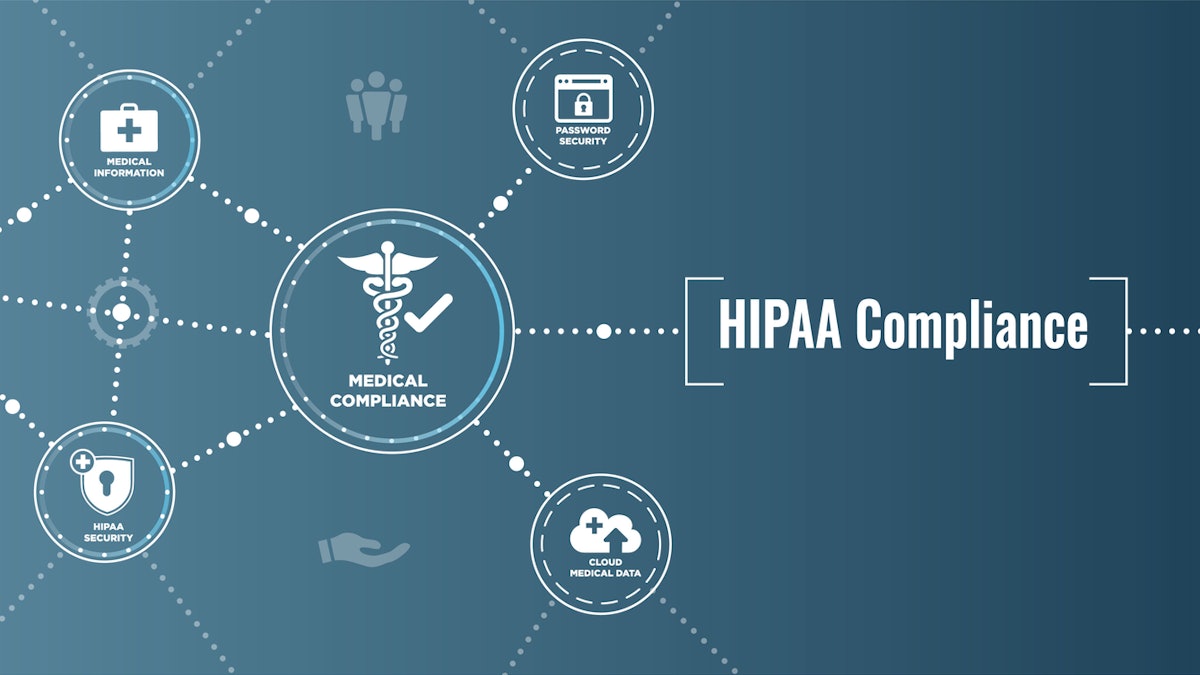In the current age of technology that is digital, protection of sensitive information is now a top concern for companies across all industries. In the healthcare industry it is especially important to comply with the Health Insurance Portability and Accountability Act (HIPAA) is a set of strict guidelines regarding the management of storage, handling, and safeguarding of protected health information (PHI). HIPAA compliance is vital for healthcare facilities to protect patient privacy as well as avoid penalties and keep a positive reputation.

HIPAA law applies to health insurance providers and healthcare plans, as do healthcare clearinghouses. It also includes business associates that are covered under HIPAA. PHI is any data that could be used in the process to identify an person. This comprises names, addresses, credit card information, and social security numbers. PHI is a commodity that can be traded on the blackmarket at an expensive price because of its role in identity theft.
The HIPAA privacy rule provides guidelines for the use and disclosure of PHI. To ensure the security, integrity and confidentiality of PHI covered entities are required to adopt policies and procedures. The policies and procedures include security awareness training as well as other measures, including access controls and security incident procedures. These organizations are also required to limit the sharing and use of personal information to only the information needed to fulfill their purpose.
The HIPAA Security Rule obliges covered entities to protect the integrity, confidentiality, and availability of ePHI by using reasonable and appropriate physical, administrative and technical safeguards. These safeguards include access controls, audit controls, integrity controls, transmission security, and contingency planning. The entities are also required to regularly assess risk levels to detect potential vulnerabilities and take steps to mitigate the risk.
The HIPAA Breach Notification Rule mandates that covered entities notify individuals affected and the Secretary of Health and Human Services and, in certain cases media in the event of an unsecured breach of PHI. The Privacy Rule defines a breach as the acquisition, use or disclosure of PHI that is not permitted by the Privacy Rules that could compromise privacy or security. To determine whether PHI might have been compromised and the potential harm that could result from a breach organizations must conduct an evaluation of risk.
HIPAA compliance requires continuous education and training for employees to ensure that they are aware of their responsibilities regarding patient privacy and security. The covered entities also need to perform regular risk assessments to determine the potential weaknesses and then take measures to minimize the risks. These measures could include installing security controls and encryption of ePHI or developing contingency plans for an eventual security incident.
The advancement of technology has had a significant impact on all aspects of our lives and health care. Electronic health records have proved revolutionary, allowing healthcare providers to store and manage the information of patients in an efficient manner. This has resulted in major cybersecurity risks, and strict compliance with HIPAA is essential. Patient information is extremely sensitive and must be safeguarded at all costs. HIPAA is never more vital than it is today, given the ever-increasing risk of cyberattacks on healthcare institutions. HIPAA aids in ensuring the security and privacy of patient data, thereby making patients feel more confident in healthcare providers.
HIPAA compliance can allow healthcare facilities to safeguard their patients’ privacy and maintain the trust of their patients. HIPAA compliance violations could cause fines of up to $100,000 as well as legal action and the loss of your reputation. The Department of Health and Human Services’ Office for Civil Rights (OCR) is accountable for enforcing HIPAA regulations. It also has the authority to investigate complaints as well as conduct compliance reviews.
HIPAA compliance is vital for healthcare organizations to protect patient privacy in the digital age. HIPAA regulations outline guidelines for managing, storing and handling protected health information. Healthcare facilities should ensure they have HIPAA-compliant guidelines and policies, perform periodic risk assessments, provide ongoing training and education for their employees, as well as conduct a regular risk assessments. They can avoid legal and financial penalties by maintaining trust among patients.
For more information, click importance of hipaa